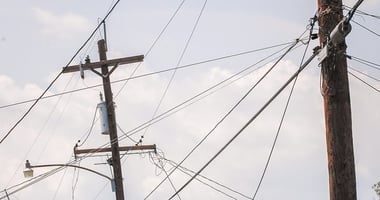How Katrina Changed Psychiatrists and Lessons They Learned
 |
“We all have a sense of expectations and beliefs about stability in the world,” Anthony Speier, Ph.D., an associate professor of clinical psychiatry at Louisiana State University (LSU) in New Orleans, told Psychiatric News. “In Katrina, the flooding and displacement meant that the normal anchors of life were in disarray and that stability was no longer available and had to be re-established.”
Speier managed Louisiana Spirit, the federally funded crisis counseling program created after the hurricane. He was one of more than a dozen mental health professionals interviewed for a two-part series in Psychiatric News that examines the indelible imprint the hurricane left on the minds of the mental health professionals who lived and traveled to the region shortly after the storm.
“Hurricane Katrina Is No Distant Memory to Gulf Coast Clinicians” describes the impact that the hurricane had on psychiatrists who were working in New Orleans when the storm hit and their involvement in efforts to rebuild the region's mental health infastructure.
“Psychiatrists Who Volunteered After Katrina Look Back on Lessons” details the efforts that were made to recruit, vet, connect, and organize volunteer psychiatrists, and the lessons psychiatrists gained from the challenges they experienced.
“Katrina was a hard experience but also a reminder of the privilege we have of helping people at a very difficult time,” said Howard Osofsky, M.D., a professor and chair of the Department of Psychiatry at the LSU Health Science Center School of Medicine in New Orleans. “I was very impressed at how people can endure difficulty and grow as human beings in the process.”
For more on the best practices for helping those affected by disaster, see Disaster Psychiatry: Readiness, Evaluation, and Treatment from American Psychiatric Publishing. APA members can purchase the book at a discount. Also, see the American Journal of Psychiatry article "Disruption of Existing Mental Health Treatments and Failure to Initiate New Treatment After Hurricane Katrina."
(Image: Gregory Pelt/Shutterstock)





